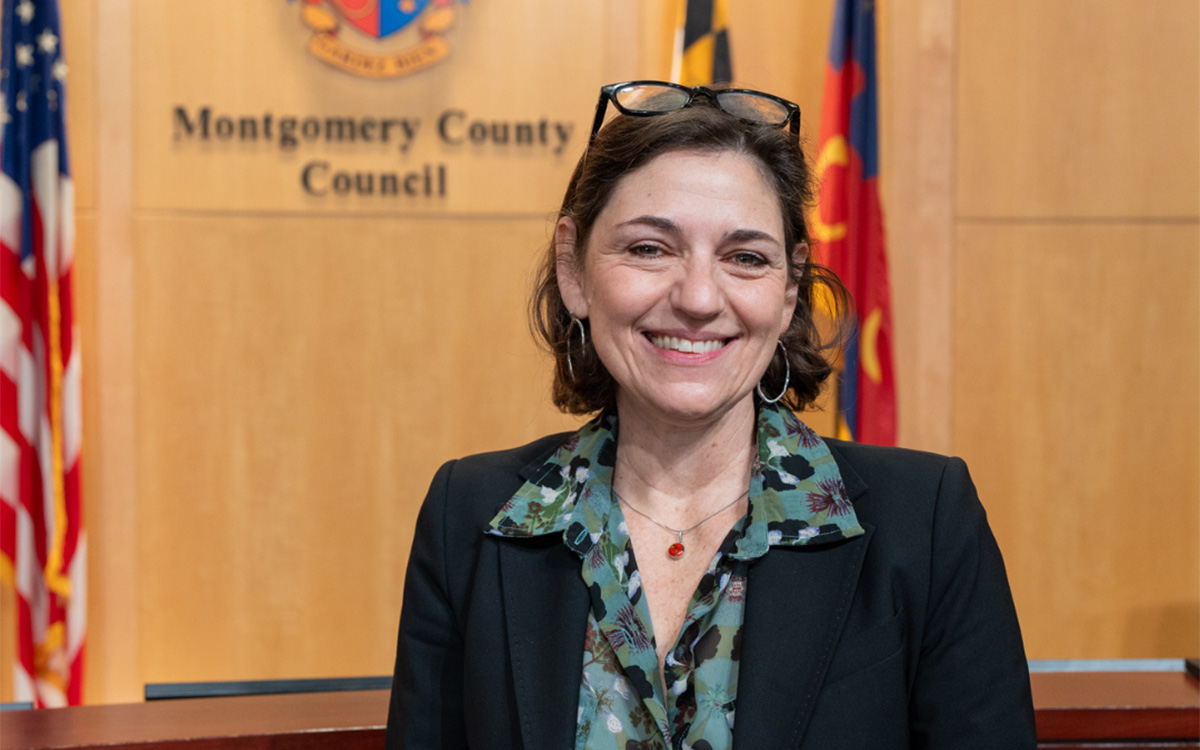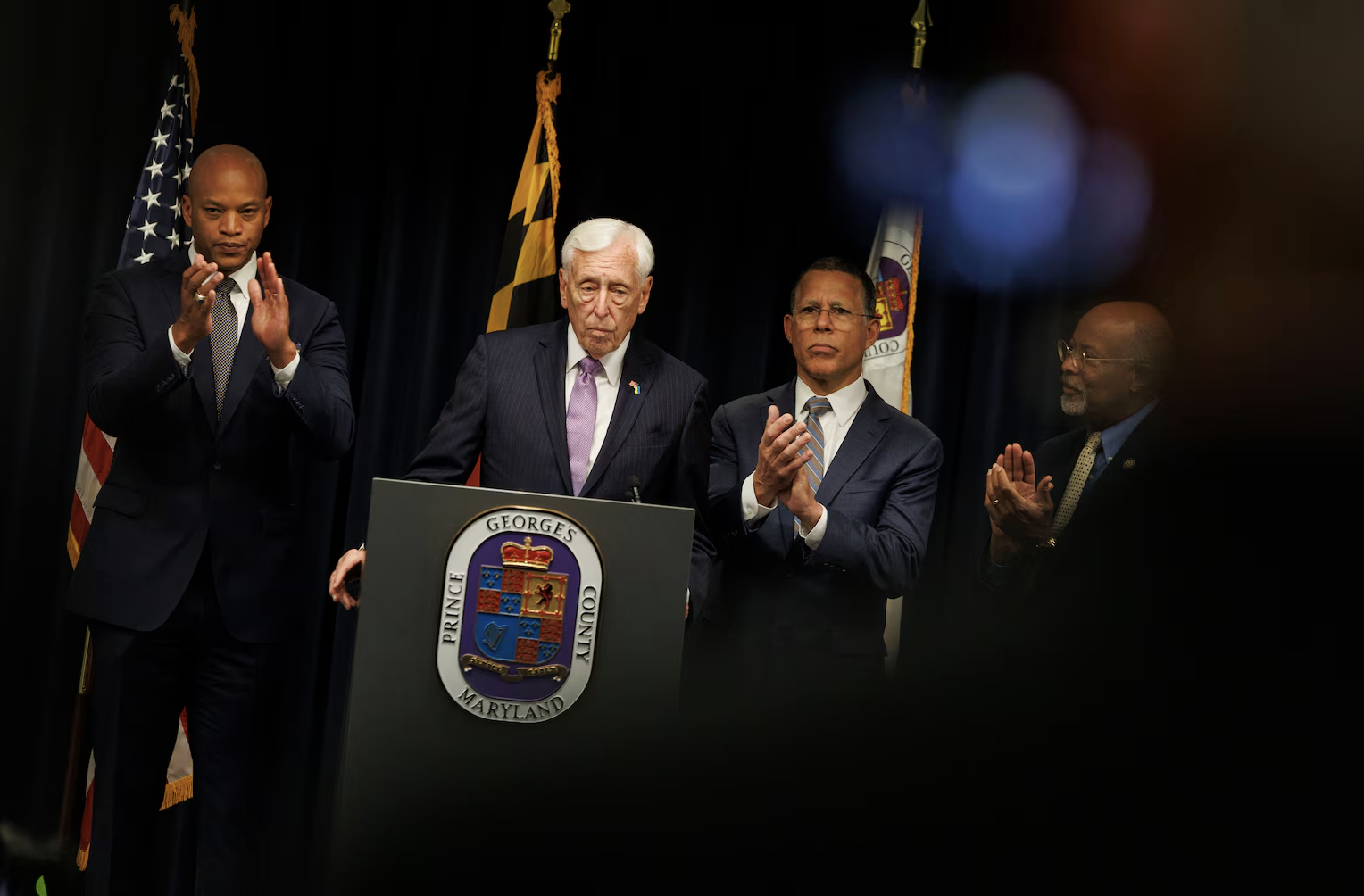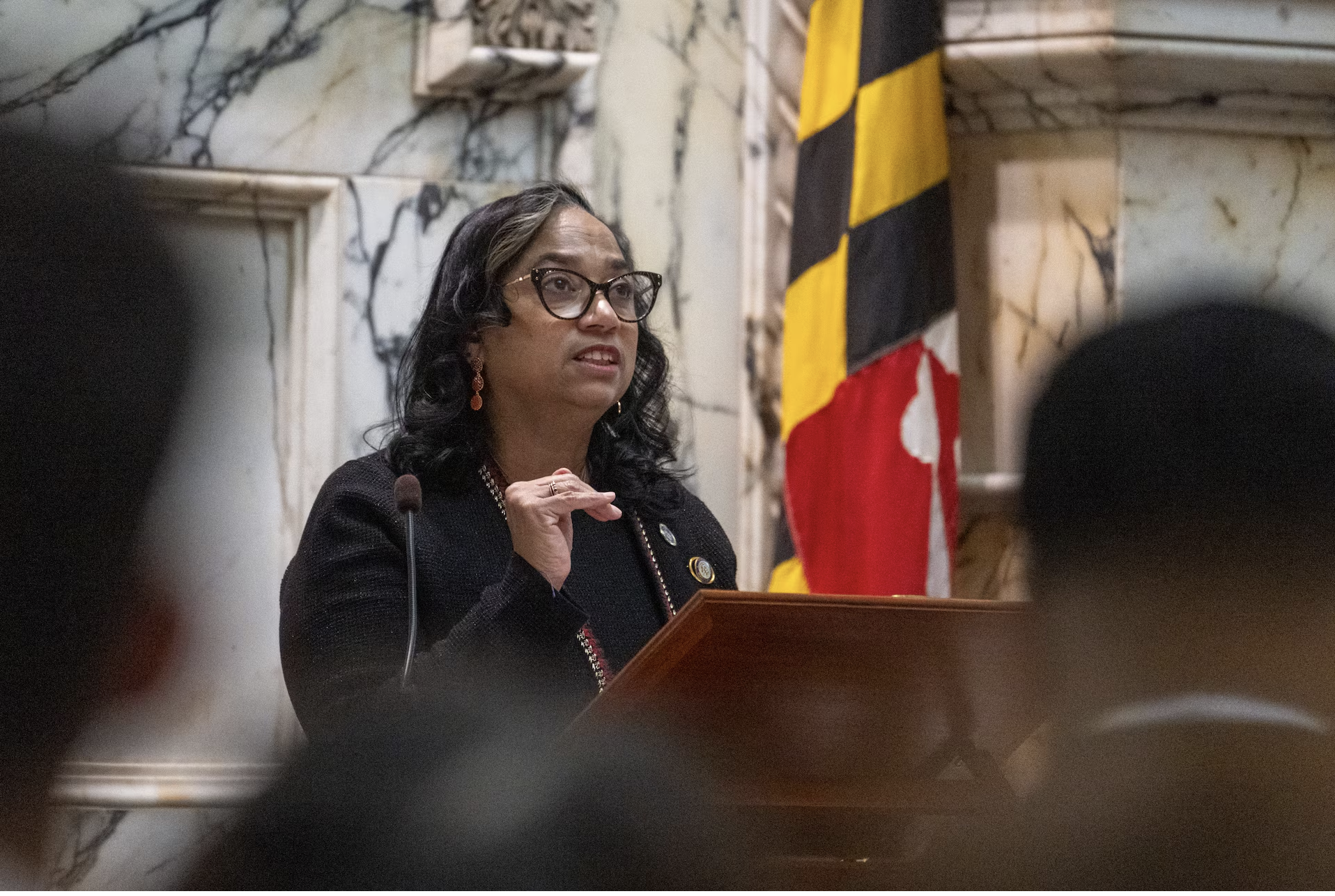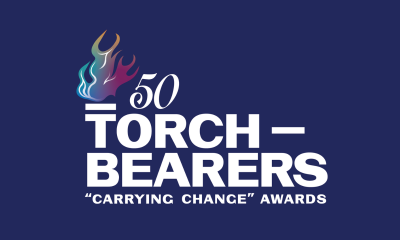Maryland
Montgomery County summit responds to transgender health care challenges
Council Vice President Kate Stewart’s son is trans

Maryland earns high marks overall from the Movement Advancement Project for its LGBTQ policy protections, including becoming a “shield” state for transgender health care, but a Montgomery County survey that found trans youth face difficulties in accessing care prompted Council Vice President Kate Stewart and a county health nonprofit to convene a virtual roundtable on Saturday.
“My son transitioned when he was in high school and our local pharmacy regularly did not have the correct size syringes,” Stewart told the Washington Blade during a telephone interview. “I had to take off from work and drive from Takoma Park to Chase Brexton in Howard County. That’s not a quick drive, and not accessible by public transportation.”
She said Trans Maryland’s work helped make syringes more available now, but more needs to be done to increase access to equitable care at the local level.
Maryland is one of 15 states, along with D.C., to which the Movement Advancement Project gave a high overall score for its LGBTQ policies. In terms of trans health care equity, 22 states have banned medically advised care for transitioning youth as of 2023, with Missouri banning similar care for adults. In response, D.C. and 14 states, including Maryland, enacted “shield” laws to protect equal access to health care.
Maryland’s Trans Health Equity Act, effective Jan. 1, requires Medicaid to cover trans-affirming care. However, a Montgomery County survey found 41 percent of those needing such care reported difficulty finding it in the county.
While the report listed three clinics — Planned Parenthood, Mary’s Center and CCI Health Services — trans residents were unaware of their services or where to look for them locally. More familiar were services provided by Chase Brexton Health and Johns Hopkins in Baltimore, and D.C.’s Whitman-Walker Health, mostly due to their long histories of work and advocacy across the region. But for the gender-diverse leaders on the panel, equity meant having local access to health care.
“Those without transportation or wealth aren’t able to receive transition health care in their community,” said Rev. Ali K. C. Bell, a minister for Congregational Life at Cedar Lane Unitarian Universalist Church.
Bell said he was privileged to be able to travel to Baltimore for the health care he needed but was disappointed by the economic disparity.
CCI Health Services, a community health center with a decades-long history in the area, joined with Stewart in hosting the roundtable to address the issues raised by the report.
CCI Chief Medical Officer Dr. Will Giodano-Perez announced a new clinic specializing in sexual and minority health, but acknowledged more could be done to address legacy discrimination and abuse.
“Our mission is to promote excellent health care for everyone,” Giodano-Perez said. “We have to be aware of what kinds of conversations we are not having with our patients and to focus on [addressing] our own biases.”
Trans Maryland Executive Director Lee Blinder spoke of their experiences often educating health care professionals while being treated.
“One day I’m going to invoice that doctor about ‘training’ them on how to treat me and others like me,” said Blinder, who grew up in Montgomery County. “I’d like to have a provider that I don’t have to train. When you’re sitting there in that paper gown, you’re vulnerable.”
Bell also emphasized everyone in the provider’s office needs to be trained in order for the health care experience to be considered affirming. Looking to the future, Amena Johnson, the LGBTQ liaison for the Montgomery County Office of Community Partnerships, stated that health disparities faced by LGBTQ seniors should be addressed as well.
“We are not all children or young people. I hope to be an old trans person one day, and it doesn’t look like a great landscape, frankly,” Blinder said before relaying an experience about visiting their grandmothers in retirement facilities and the care teams not being ready to interact with them as a trans grandchild, much less as a future trans resident.
Giodano-Perez acknowledged the pain caused by these difficult health care experiences, but admitted one health organization cannot handle these issues alone and it would take involvement and support from the community.
“We are limited with how much time we have,” he explained, noting the frustration of not being able to address all of the social determinants of health, but also not wanting to see “another of our patients pass from suicide.”
He stated one place to start was to make care respectful and effective for everyone.
“Sounds basic,” he said, “but we’re going to tackle these things.”
Stewart told the Blade her challenges seeking care for her son showed her health equity was about having access to resources where you lived.
“On a map it may look like, well, we have Chase Brexton over here and Whitman-Walker in D.C.,” she said, “but connecting with people’s everyday experiences … shows how much work we still have to do.”
Maryland
Layoffs and confusion at Pride Center of Maryland after federal grants cut, reinstated
Trump administration move panicked addiction and mental health programs

By ALISSA ZHU | After learning it had abruptly lost $2 million in federal funding, the Pride Center of Maryland moved to lay off a dozen employees, or about a third of its workforce, the Baltimore nonprofit’s leader said Thursday.
The group is one of thousands nationwide that reportedly received letters late Tuesday from the Trump administration. Their mental health and addiction grants had been terminated, effective immediately, the letters said.
By Wednesday night, federal officials moved to reverse the funding cuts by the Substance Abuse and Mental Health Services Administration, estimated to total $2 billion, according to national media reports. But the Pride Center of Maryland’s CEO Cleo Manago said as of Thursday morning he had not heard anything from the federal government confirming those reports.
The rest of this article can be read on the Baltimore Banner’s website.
Maryland
Steny Hoyer, the longest-serving House Democrat, to retire from Congress
Md. congressman served for years in party leadership

By ASSOCIATED PRESS and LISA MASCARO | Rep. Steny Hoyer of Maryland, the longest-serving Democrat in Congress and once a rival to become House speaker, will announce Thursday he is set to retire at the end of his term.
Hoyer, who served for years in party leadership and helped steer Democrats through some of their most significant legislative victories, is set to deliver a House floor speech about his decision, according to a person familiar with the situation and granted anonymity to discuss it.
“Tune in,” Hoyer said on social media. He confirmed his retirement plans in an interview with the Washington Post.
The rest of this article can be found on the Baltimore Banner’s website.
Maryland
Joseline Peña-Melnyk elected Md. House speaker
Family immigrated to New York City from the Dominican Republic

By PAMELA WOOD | Moments after being elected speaker of the Maryland House of Delegates Tuesday, state Del. Joseline Peña-Melnyk stood before the chamber and contemplated her unlikely journey to that moment.
Born in the Dominican Republic, the Peña family lived in a small wooden house with a leaky tin roof and no indoor plumbing. Some days, she said, there was no food to eat.
When she was 8 years old, the family immigrated to New York City, where Peña-Melnyk was dubbed “abogadito” or “little lawyer” for helping her mother and others by translating at social services offices.
The rest of this article can be read on the Baltimore Banner’s website.
-

 U.S. Supreme Court5 days ago
U.S. Supreme Court5 days agoSupreme Court hears arguments in two critical cases on trans sports bans
-

 Virginia5 days ago
Virginia5 days agoWoman arrested for anti-gay assault at Alexandria supermarket
-

 Commentary5 days ago
Commentary5 days agoHonoring 50 queer, trans women with inaugural ‘Carrying Change’ awards
-

 District of Columbia5 days ago
District of Columbia5 days agoRuby Corado sentenced to 33 months in prison


















